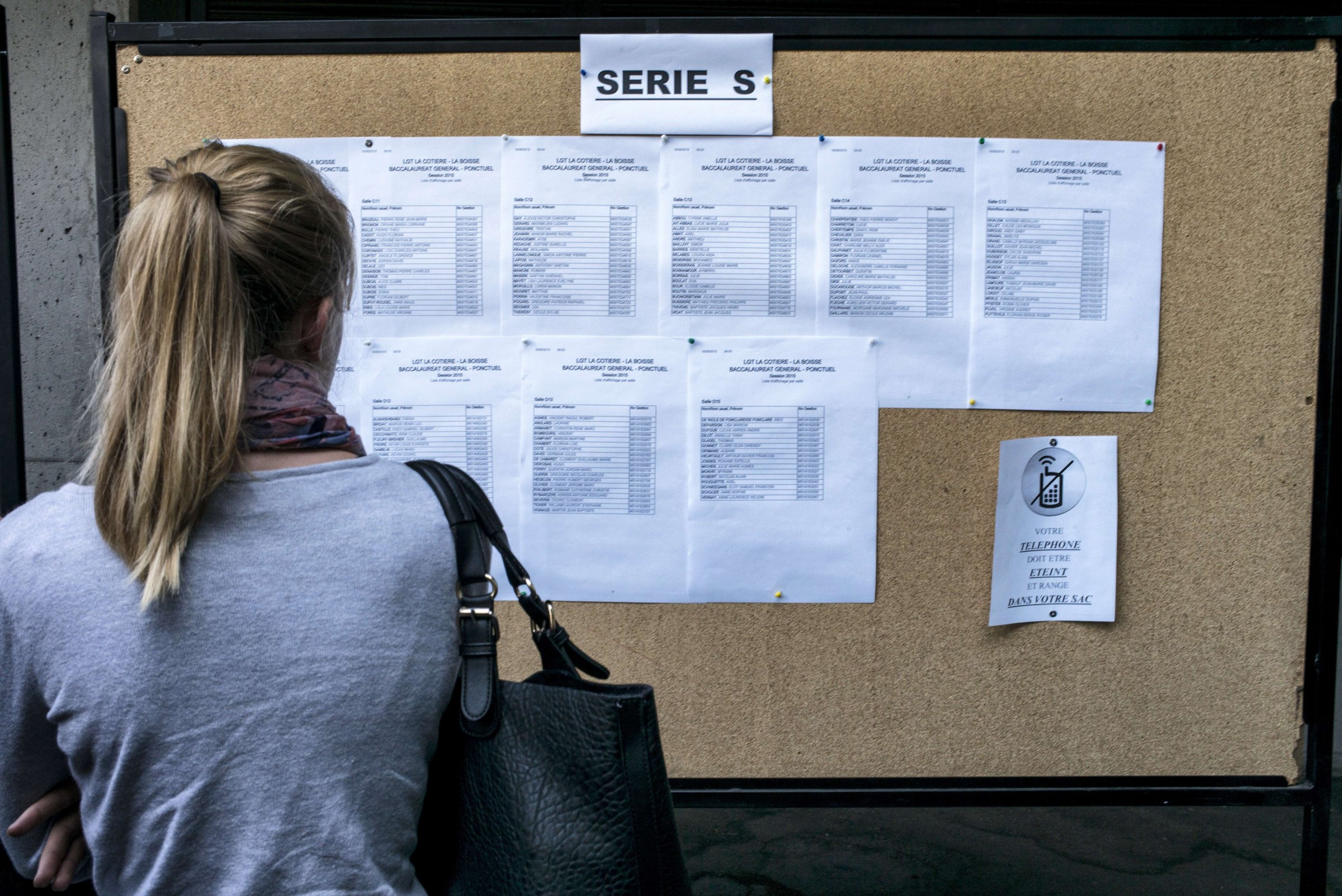
Never mind how long you think it’s been since you got your last report card, if you’re a parent, you get them all the time. Your son’s D in history despite the many times you told him to sit down and study already? That’s your D too. And as for all those As your no-nonsense, hardworking daughter keeps getting? Well, don’t get too full of yourself, but you own a piece of those as well.
That, at least, is one implication of a new—and faintly unsettling—study published in the Journal of Family Psychology. The report’s takeaway: your kids get the grades you expect them to get.
Parental expectations have long been an under-appreciated factor in the childrearing game. Kids are smart, the research suggests, especially when it comes to divining what mom and dad think of them. A child who is expected to underachieve will often live down to that prediction. A child expected to thrive will not necessarily become an academic, athletic or social superstar, but will have a much better shot at it.
To test how this dynamic plays out in the case of scholastic performance, Alexander Jensen of Brigham Young University and Susan McHale of Penn State assembled a sample group of 388 two-parent families with at least two children, and focused on the first- and second-borns of the brood. The sibling dyads—or pairs—were selected to represent all four possible age and gender combinations: two brothers, two sisters, an older brother and younger sister and an older sister and younger brother.
The parents were asked a handful of questions about how their children are similar or different when it comes to school work, which of the two is a better student, and how great, on a five-point scale, that difference in performance is. Simple stuff, but it produced surprising results.
On the whole, parents tended to believe that their older child was the better student, though the previous year’s report cards and grade point average often showed that that wasn’t the case. Parents exhibited a gender bias too, typically believing that a daughter was a better student than a son—which on average was true—even when the daughter was the younger child.
All those beliefs, founded in fact or not, had their effect on kids. When the researchers controlled for all of the reasons one child might have performed even a little bit better than the other in the previous school year, they found that the biggest factor determining how the kids would perform the following year was the parents’ belief in who the better student was. On average, the sibling the parents expected to outperform the other one did, by an average GPA bump of 0.21 points. That’s hardly an inconsequential margin, especially when it makes the kind of symbolic difference bringing home a 2.79 versus a 3.0 does.
But while parental expectations had a powerful impact on the kids performance, the reverse was not often true. Even when the child who was thought to be the lesser student did better than the other one, parents’ beliefs remained fixed; the golden child will always be seen as the golden child, never mind any academic tarnish that may accumulate over time.
The study was by no means a perfect one. Some parents surely do a worse job of hiding their expectations than others; some may even make it a point not to hide them, in the why-can’t-you-study-like-your-sister-does way. A sample group of 388 families might have 388 different ways of managing that dynamic.
Then too there is the chicken-egg problem. A question and answer survey of parents and a statistical core sample of just a year or two of grades does not remotely capture an entire childhood’s worth of experiences in which kids’ academic performance may be changing all the time and parents are forever having to tack into those winds.
“At younger ages, differences between siblings may shape parents’ beliefs,” the authors conceded, “and a direction for research is to determine how parents’ ideas about similarities and differences between their children emerge and develop over time.”
Still, if there’s one thing kids have always had it’s an uncannily good radar for what their parents think of them. And if there’s one thing parents often lack, it’s a good defense against that. Mom and Dad may never be able to hide their expectations about their kids completely, but they could, at least, do a better job of adjusting them as circumstances warrant. The kids themselves—to say nothing of their GPAs—will thank them for it.
More Must-Reads from TIME
- Donald Trump Is TIME's 2024 Person of the Year
- Why We Chose Trump as Person of the Year
- Is Intermittent Fasting Good or Bad for You?
- The 100 Must-Read Books of 2024
- The 20 Best Christmas TV Episodes
- Column: If Optimism Feels Ridiculous Now, Try Hope
- The Future of Climate Action Is Trade Policy
- Merle Bombardieri Is Helping People Make the Baby Decision
Write to Jeffrey Kluger at jeffrey.kluger@time.com